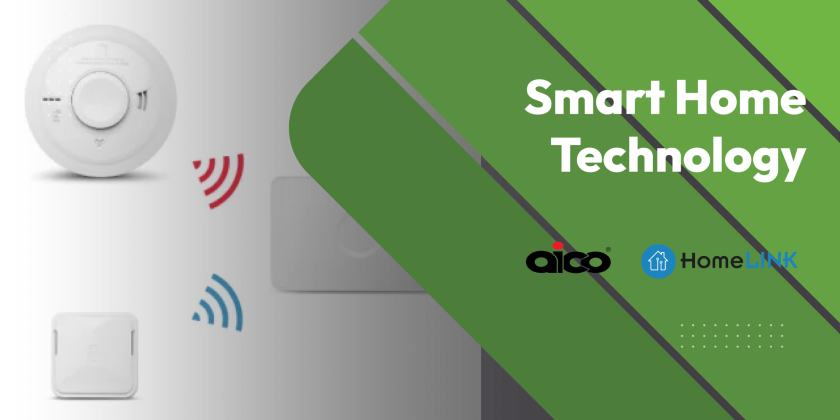Harnessing the power of the sun is an increasingly popular choice for homeowners looking to reduce their carbon footprint and lower energy bills. As solar panels become a common sight on rooftops across the UK, understanding how to maximise their efficiency is crucial. Simple adjustments and maintenance can significantly enhance their performance, ensuring you get the most out of your investment. In this article, we’ll explore practical steps you can take to boost the efficiency of your solar panels and contribute to a greener future. Whether you’re new to solar energy or a seasoned user, these tips will help you make the most of your solar setup.
Understanding Solar Panel Efficiency
Understanding solar panel efficiency is key to getting the most out of your solar energy system. Efficiency determines how well your panels convert sunlight into electricity. By grasping the basics, you can make informed decisions that enhance performance.
Key Factors Impacting Performance
Several factors affect solar panel efficiency. Temperature plays a significant role; higher temperatures typically reduce efficiency. Location and weather conditions also impact performance. In the UK, cloudy days can lower output, though panels still generate electricity. Panel type and age are also crucial. Older panels may not perform as well as newer, more advanced models. Shading from trees or buildings can significantly reduce efficiency. It’s essential to consider these factors when installing panels.
Typical Efficiency Rates Explained
Solar panel efficiency rates help you understand how much sunlight your panels can convert into electricity. Most residential panels have efficiency rates between 15% and 20%. Higher-efficiency panels are available, but they may be more expensive. It’s important to balance efficiency with cost when selecting panels. Technological advancements continue to improve efficiency rates, making solar energy more accessible.
Debunking Common Myths
Myths about solar efficiency persist. One common misconception is that panels need direct sunlight to work. In reality, they can still generate electricity on cloudy days. Another myth is that solar energy doesn’t work in cold climates; however, panels can be more efficient in cooler temperatures. Some believe that solar panels require constant maintenance. While maintenance is essential, it doesn’t need to be burdensome. Understanding these myths helps homeowners make informed decisions.
Installation and Maintenance Tips
Proper installation and maintenance are crucial for maximising solar panel efficiency. By following best practices, homeowners can ensure their panels perform optimally.
Optimal Placement and Angling
-
Assess Roof Space: Ensure there’s enough space for the panels without obstructions like chimneys or vents.
-
Consider Sunlight Exposure: Position panels to receive maximum sunlight, typically facing south in the UK.
-
Check Roof Angle: A tilt of around 30-40 degrees is optimal for most UK locations.
-
Avoid Shading: Trim trees or relocate objects that cast shadows on your panels.
-
Consult Professionals: Get expert advice for the most efficient placement.
Regular Cleaning Practices
Regular cleaning is vital to maintain efficiency. Dust, dirt, and bird droppings can accumulate, reducing performance. Rainfall helps clean panels, but additional cleaning may be necessary. Use soft brushes or squeegees to remove dirt gently. Avoid harsh chemicals that could damage the panels. Safety first: if your panels are on a roof, consider hiring a professional for cleaning.
Professional Maintenance Checks
Engage professionals for regular maintenance checks. They can inspect for potential issues, such as loose connections or worn-out components. Regular inspections can prevent problems and extend panel lifespan. Professionals can also provide tailored advice on optimising performance based on your specific setup. Schedule maintenance checks at least once a year to ensure everything is functioning correctly.
Enhancing Efficiency with Technology
Technological advancements can significantly enhance solar panel efficiency. By integrating modern innovations, homeowners can boost their solar systems’ performance and reliability.
Smart Inverters and Monitoring
Smart inverters convert DC electricity from panels into AC electricity for home use. They also monitor system performance, providing real-time data. Monitoring helps identify issues quickly, ensuring optimal efficiency. Use monitoring apps to track energy production and consumption patterns. This data can guide energy-saving measures, further enhancing efficiency.
Battery Storage Solutions
Battery storage systems store excess solar energy for later use. This allows homeowners to use solar power even when the sun isn’t shining, increasing energy independence. Modern batteries are more compact and efficient. They help reduce reliance on the grid and can lower energy bills. Consider investing in a battery system to maximise your solar setup’s potential.
Advanced Panel Materials
Advancements in panel materials are boosting efficiency. Bifacial panels capture sunlight from both sides, increasing energy output. Perovskite materials show promise for higher efficiency rates. Researchers are exploring thin-film technologies for lightweight, flexible panels. These innovations are paving the way for more efficient solar energy systems, offering greater returns on investment.
Environmental and Financial Benefits
Solar panels offer significant environmental and financial benefits. By understanding these advantages, homeowners can make more informed decisions about their solar energy investments.
Reducing Carbon Footprint
Switching to solar energy reduces your carbon footprint. Solar panels generate clean electricity, decreasing reliance on fossil fuels. This helps combat climate change by reducing greenhouse gas emissions. Every kilowatt-hour of solar power produced replaces energy from non-renewable sources. Embracing solar energy contributes to a more sustainable future.
Long-term Cost Savings
Solar panels can lead to substantial long-term cost savings. Initial investment costs may seem high, but panels often pay for themselves over time. Reduced energy bills and government incentives can offset initial expenses. The average payback period for solar panels is around 7-10 years. After this, you enjoy free electricity, leading to significant savings over the panel’s lifetime.
Government Incentives and Rebates
The UK government offers incentives and rebates to support solar energy adoption. Feed-in Tariffs and Smart Export Guarantees provide payments for surplus energy exported to the grid. VAT reductions on solar installations further reduce costs. These incentives make solar energy more accessible and financially viable for homeowners. Check available schemes to maximise your investment.
Future Trends in Solar Technology
The future of solar technology holds exciting possibilities. By staying informed about emerging trends, homeowners can make informed decisions and embrace new opportunities.
Emerging Innovations
Emerging innovations are transforming the solar industry. Floating solar farms utilise bodies of water, reducing land use. Solar skins blend panels into rooftops, enhancing aesthetics. Transparent solar cells can be integrated into windows, expanding applications. These innovations promise to make solar energy more versatile and widespread.
Predictions for the Solar Market
The solar market is expected to grow significantly. Falling costs and increasing efficiency drive adoption. Global investments in renewable energy are rising, indicating a positive outlook. The UK government aims to achieve net zero emissions by 2050, further boosting solar energy demand. These trends suggest a bright future for the solar industry.
Adapting to Climate Change Needs
As climate change accelerates, solar technology must adapt. Resilient solar systems withstand extreme weather, ensuring reliable energy supply. Innovations in energy storage improve grid stability. Solar energy plays a crucial role in mitigating climate change, providing sustainable solutions for a changing world. Embracing solar technology is a step towards a more resilient future.


